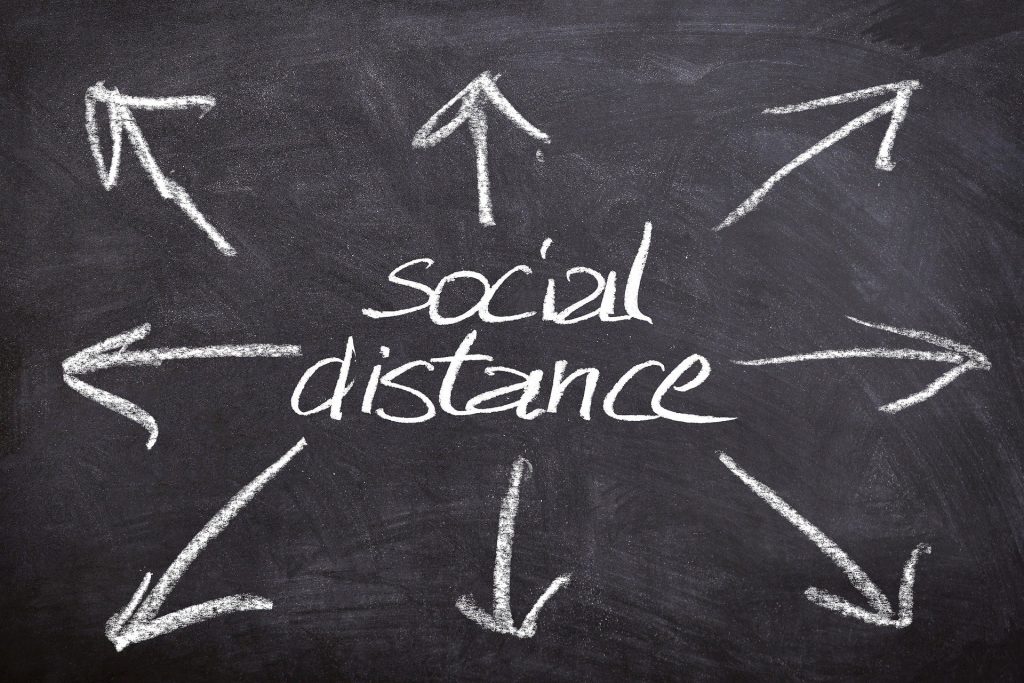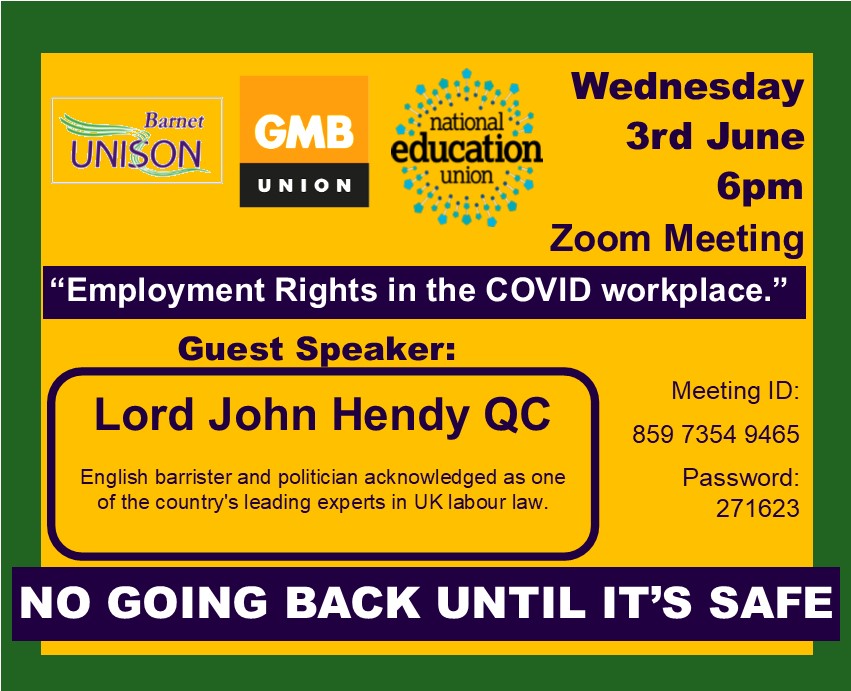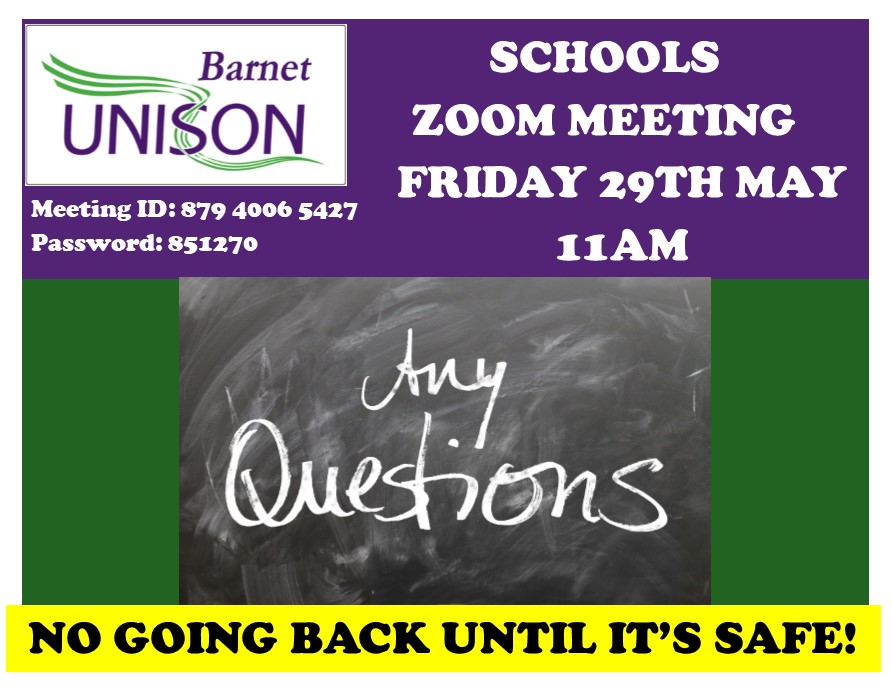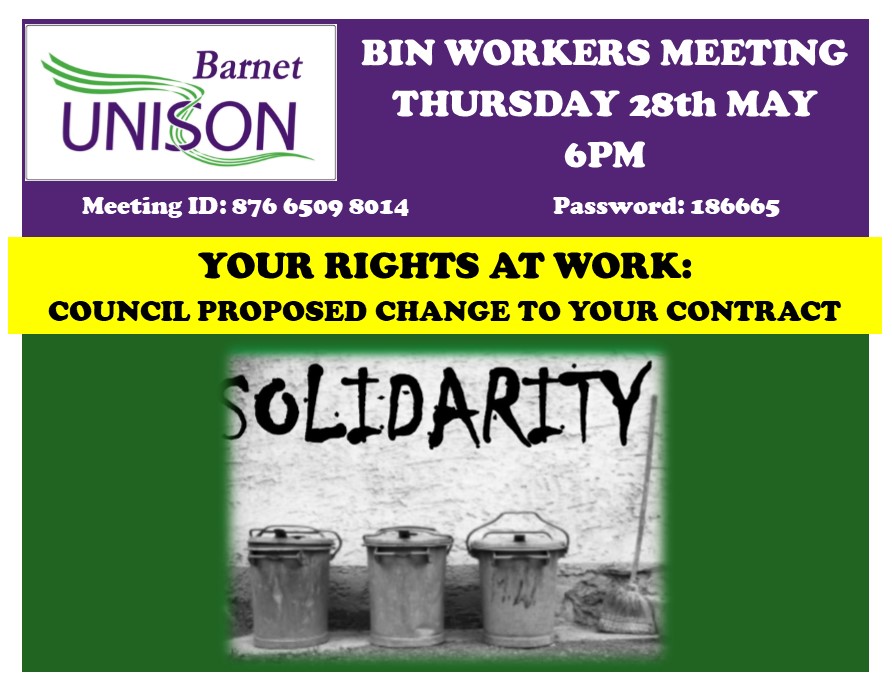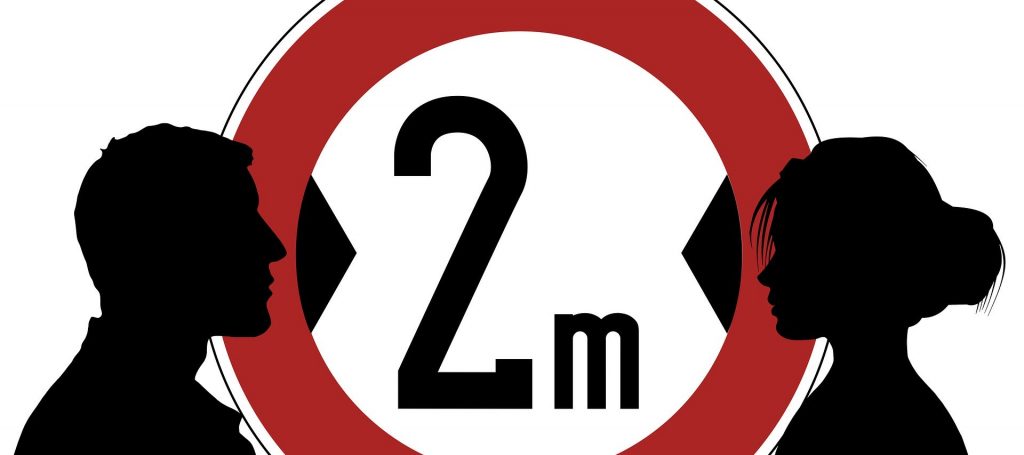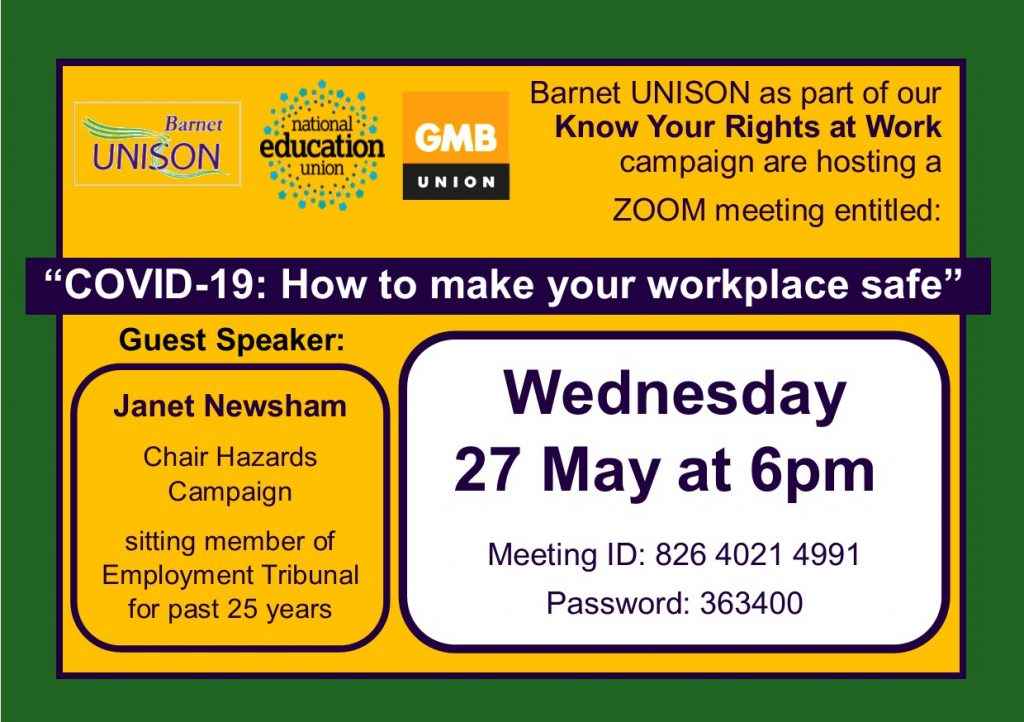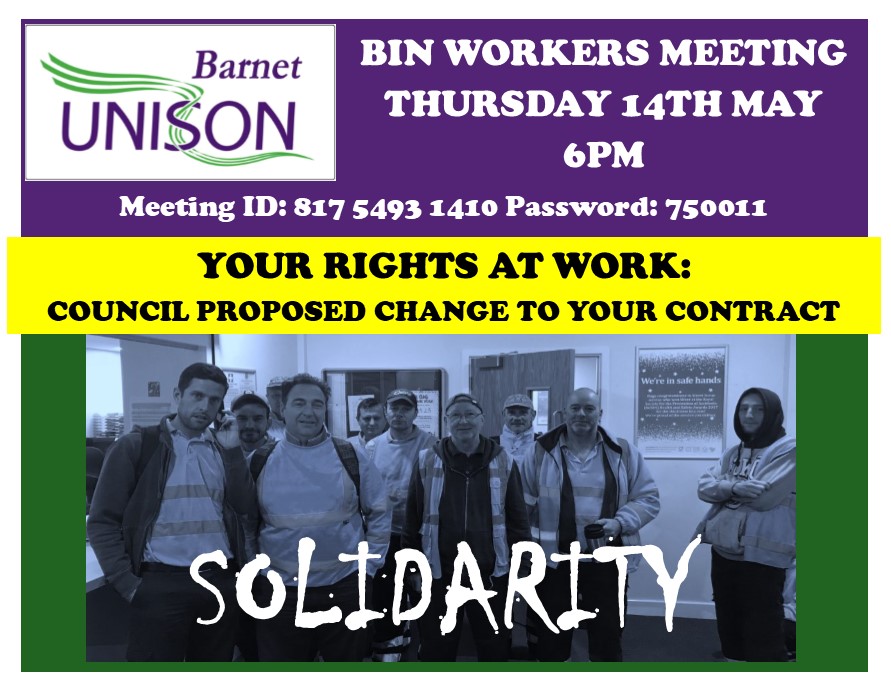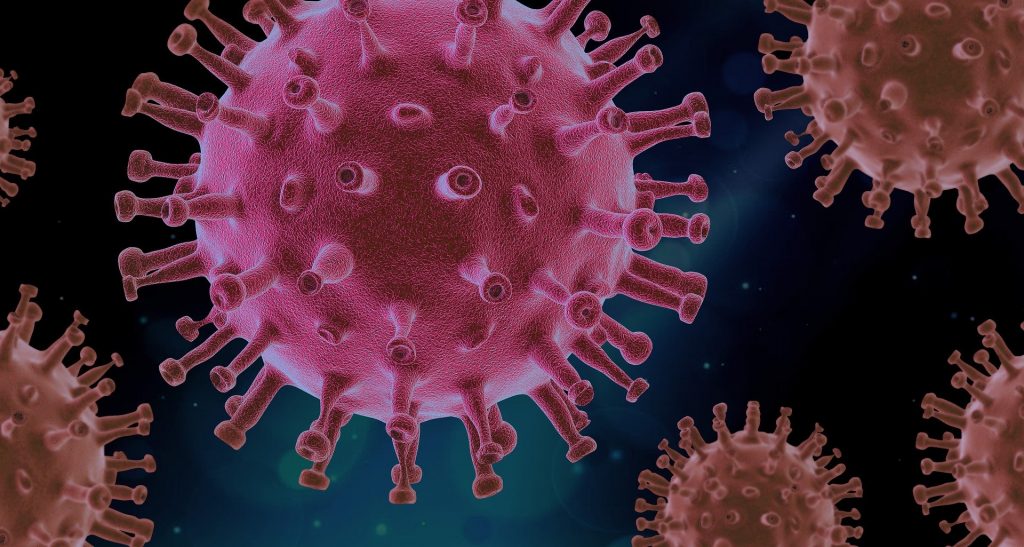
Dear Members
Barnet UNISON as part of our efforts to ensure all of our members was safe contacted Capita in order that we could take part in the Risk Assessment consultation process.
Our branch has been busy for the last 8 weeks supporting and advising our members working and dealing with the COVID 19 risk in the workplace.
Whilst many staff are able to work from home there are staff who have to go out into the community to deal with the public.
It is important that all employers comply with Health and Safety Legislation in relation to Risk Assessments.
Now more than ever all employers should understand the importance of carrying out Risk Assessments for all of their staff in order they can provide assurances their workplace is safe.
It is important to note but as of Friday 22 May 2020, Barnet UNISON has not been consulted on any Risk Assessment for any job role being carried out by our members on both Capita contracts.
We have seen a Capita generic Risk Assessment which as soon as we challenged it Capita admitted it was out of date.
Barnet UNISON was informed that Capita compliance team issued 3 generic risk assessments (which have seen) which we were told would be a starting point for discussions around role specific Risk Assessments for staff working on the two Barnet contracts.
This was positive news.
Barnet UNISON requested the contact details for the manager responsible for coordinating the Risk Assessments on both Capita contracts in Barnet.
Capita responded stating they will not share or agree all risk assessments as requested as this is not something as an organisation that we do.
The health, safety and welfare of our members working for Capita is a serious matter and as such we have escalated this matter to UNISON National as the following legislation must be followed by the employer.
It is worrying that in this current COVID Pandemic where serious and fatal risks are being faced by workers every day that any employer would refuse to share or agree Risk Assessments with a Trade Union.
Relevant Legislation: Management of Health and Safety at Work Regulations 1999
Regulation 3 – employers must conduct suitable and sufficient risk assessments
Regulation 4 – requires employer to control hazards at source
Regulation 7 – employer must appoint competent persons to conduct RA
Regulation 10 – workers must be given comprehensive and relevant information about risks
Regulation 13 – employers must ensure workers are capable and trained
Regulation 16/19 – RA must take account of women of child-bearing age and young people’s risks.
Personal Protective Equipment at Work Regulations 1992
Regulation 4 states:
Every employer shall ensure that suitable personal protective equipment is provided to his employees who may be exposed to a risk to their health or safety while at work except where and to the extent that such risk has been adequately controlled by other means which are equally or more effective.
If you have any concerns please email the branch on contactus@barnetunison.org.uk
End.
